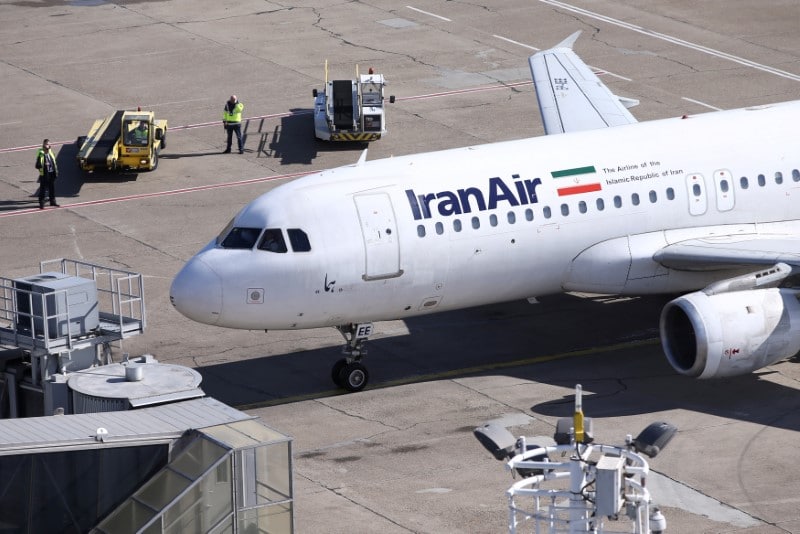An IranAir Airbus A320 aircraft at Belgrade’s Nikola Tesla Airport, Serbia, March 13, 2018 (Marko Djurica/Reuters)
Iran has called on the European Union to press the US to allow delivery of 100 Airbus passenger aircraft.
In early 2016, immediately after the implementation of the nuclear deal between Iran and the 5+1 Powers, Tehran announced the purchase of 118 Airbus jets. But only three aircraft were received, reportedly because the Islamic Republic — limited by financial sanctions — could not get access to funds. Tehran reduced its order to 100 jets, but with no advance on completion.
The situation was compounded by Donald Trump’s withdrawal in May from the 2015 nuclear agreement, with comprehensive US sanctions from November 5. The US Treasury revoked licenses for Airbus and for Boeing, which had signed an agreement to deliver 80 jets.
While Airbus is based in France, at least 10% of the components of the aircraft are made in the US. Defiance of the sanctions could lead to large fines.
IranAir chief executive Farzaneh Sharafbafi said Monday, “Our main concern is being able to serve our passengers better….We hope that the European Union can get the OFAC (US Office of Foreign Assets Control) licenses for delivery of purchased Airbus planes.”
Iran’s aging aircraft fleet is susceptible to technical failures and deadly crashes. There have been additional difficulties from US bans on replacement parts.
With the EU unable to give financial guarantees to large firms against US sanctions, many have suspended business with the Islamic Republic. They include French energy giant Total, French auto manufacturer PSA, Germany’s Siemens and Deutsche Bahn, and the world’s largest shipper Maersk. European airlines have halted service to and from Iran.
But Sharafbafi insisted on Monday, “Iran Air can never be stopped.”

